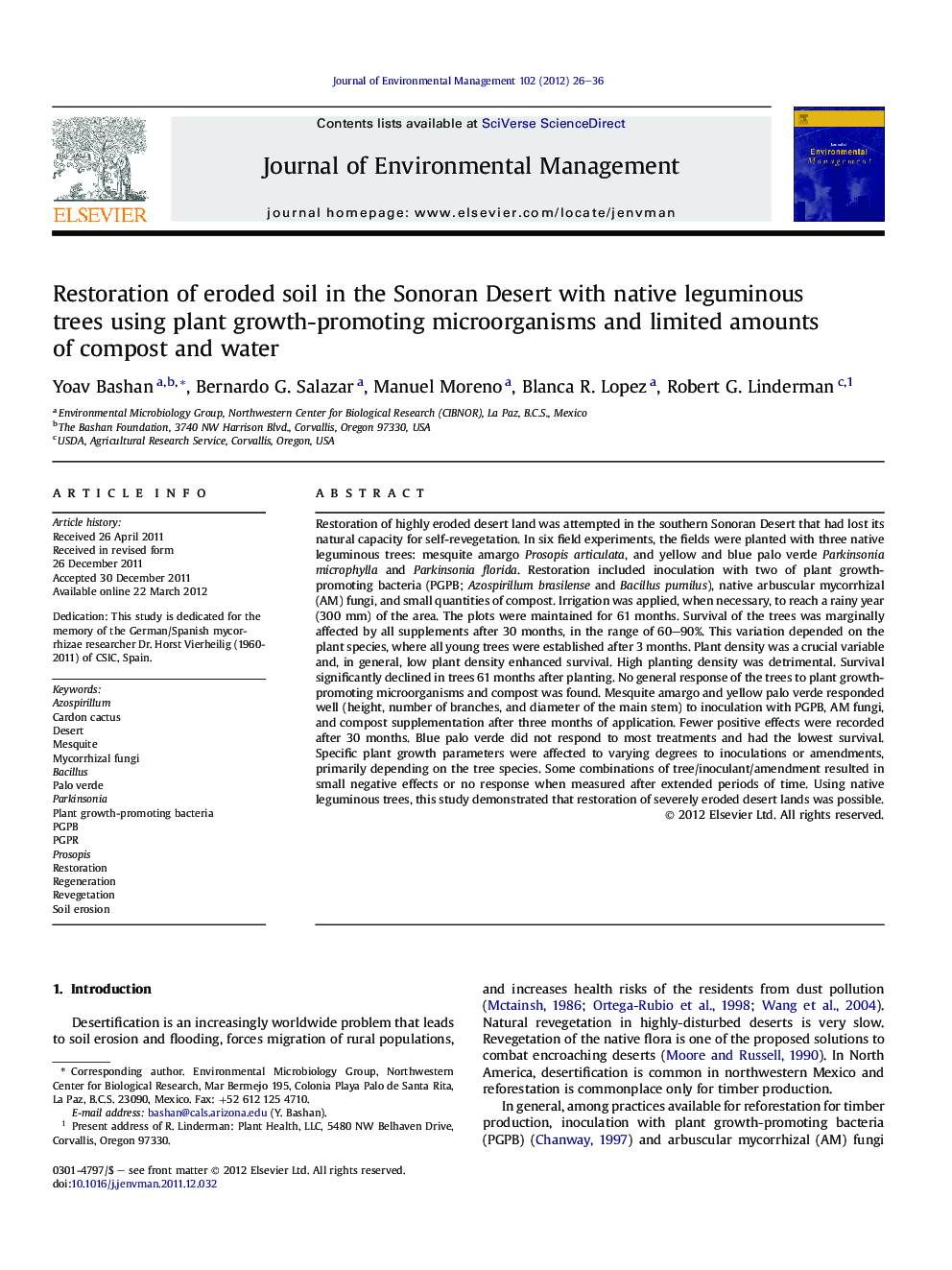| Article ID | Journal | Published Year | Pages | File Type |
|---|---|---|---|---|
| 1056809 | Journal of Environmental Management | 2012 | 11 Pages |
Restoration of highly eroded desert land was attempted in the southern Sonoran Desert that had lost its natural capacity for self-revegetation. In six field experiments, the fields were planted with three native leguminous trees: mesquite amargo Prosopis articulata, and yellow and blue palo verde Parkinsonia microphylla and Parkinsonia florida. Restoration included inoculation with two of plant growth-promoting bacteria (PGPB; Azospirillum brasilense and Bacillus pumilus), native arbuscular mycorrhizal (AM) fungi, and small quantities of compost. Irrigation was applied, when necessary, to reach a rainy year (300 mm) of the area. The plots were maintained for 61 months. Survival of the trees was marginally affected by all supplements after 30 months, in the range of 60–90%. This variation depended on the plant species, where all young trees were established after 3 months. Plant density was a crucial variable and, in general, low plant density enhanced survival. High planting density was detrimental. Survival significantly declined in trees 61 months after planting. No general response of the trees to plant growth-promoting microorganisms and compost was found. Mesquite amargo and yellow palo verde responded well (height, number of branches, and diameter of the main stem) to inoculation with PGPB, AM fungi, and compost supplementation after three months of application. Fewer positive effects were recorded after 30 months. Blue palo verde did not respond to most treatments and had the lowest survival. Specific plant growth parameters were affected to varying degrees to inoculations or amendments, primarily depending on the tree species. Some combinations of tree/inoculant/amendment resulted in small negative effects or no response when measured after extended periods of time. Using native leguminous trees, this study demonstrated that restoration of severely eroded desert lands was possible.
► Leguminous trees were established in areas of severely eroded desert soil. ► Plant growth-promoting microorganisms enhanced plant growth for short periods. ► Fewer positive effects of these amendments were recorded after 30 months. ► Plant density was a crucial variable for long term survival (five years).
